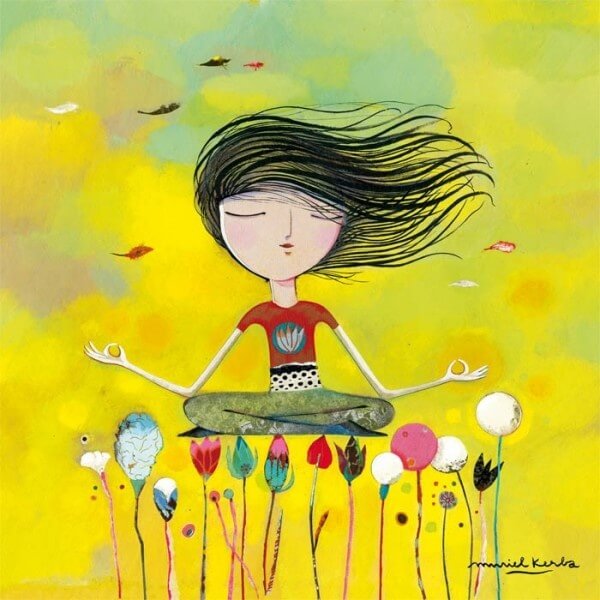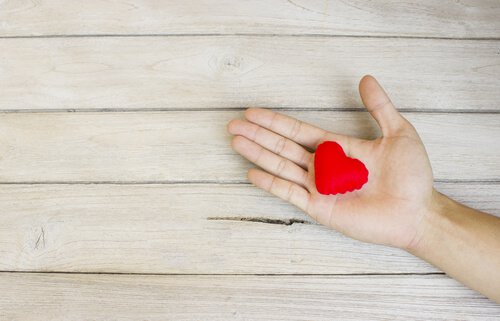The Meaning of Giving Love

I’m by your side. I’m your friend, your partner, your family, the one that loves you, or I’m someone you don’t know but who’s willing to help you.
Sometimes, we may drift apart or maybe we don’t know each other, but the truth is that there’s a bond that binds us. If you fall, I’ll pick you up and help you walk again; and if you can’t walk, I’ll lie down beside you.
I understand you. I melt into your skin, your thoughts. I know who you are and I don’t reveal your secrets. You know me and protect me. We feel a connection between our souls. We share a life and smile by simply looking at each other. We fall and get back up together.
The meaning of giving love
If I see you crying and tell you I’m sorry and walk away, I’m not giving you love. If I pay for my children’s studies but I ignore them, I’m not giving them love. If I see that my partner is having some problems and buy them a car, I’m not giving them love.
Of all of the varieties of virtue, generosity is the most prized”.
-Aristotle-
To give love means so much more. To help someone is to put yourself in their shoes, to feel their suffering, their grief, their sadness as your own, and to make the person see that you’re there for them.
That you’re going to keep them from falling, and that if they fall you’re going to help pick them up. Helping someone else should be an altruistic gesture intended for another person, not ourselves.
But you don’t just give love to people you know. We can also give it to other people that are strangers but need it. It’s love in the form of a helping hand, a form of support.
The benefits of helping others
Helping others doesn’t only benefit the people we lend our support to. It also helps us in many different aspects, and makes us evolve as people. Up next we’ll describe some of the benefits produced when we help other people…
It extends your life
According to a study published by the magazine Health Psychology, people who perform volunteer work live longer than those who don’t, as long as their reason for helping is to help others and not for “personal satisfaction”.
Sara Konrath and many of her colleagues at the University of Michigan reached the conclusion after studying 10,000 people of varying ages, that within four years the chances of survival were 3% higher in people who performed volunteer work.
The scientific basis that Konrath gave to explain the increase in longevity was that by worrying about others the stress responses within our organisms are disabled, and hormones such as oxytocin are released, which reestablishes our normal physiological functions.
It provokes mental well-being
Helping other people, as we were saying earlier, needs to be understood in a broad sense. That is to say, we shouldn’t only limits ourselves to people we know, but can also extend our help to other people we don’t know but whom may need it.
“He who brings suffering to others harms himself. He who helps others helps himself.”
-León Tolstoy-

It increases our self-esteem
When we help other people and feel their gratitude, the opinion we hold of ourselves, our self-esteem, improves. It’s an immense satisfaction to feel how our help is appreciated, and it’s a gift for our self-esteem. We feel useful. We feel that we have done something valuable.
He who helps becomes a more positive person
Helping others generates positive feelings of joy and happiness. It makes you feel like the glass is half full and not half empty. Being charitable makes you a more optimistic person. The positive thoughts that are generated when we help someone are the source of our sense of happiness.
Therefore, helping others, lending a hand, it helps others and also helps us to be better people, to see the world from another perspective and to be happier.
“Sometimes we feel that what we do is just a drop in the ocean, but the ocean would be smaller without that drop. “
-Mother Teresa of Calcutta-
I’m by your side. I’m your friend, your partner, your family, the one that loves you, or I’m someone you don’t know but who’s willing to help you.
Sometimes, we may drift apart or maybe we don’t know each other, but the truth is that there’s a bond that binds us. If you fall, I’ll pick you up and help you walk again; and if you can’t walk, I’ll lie down beside you.
I understand you. I melt into your skin, your thoughts. I know who you are and I don’t reveal your secrets. You know me and protect me. We feel a connection between our souls. We share a life and smile by simply looking at each other. We fall and get back up together.
The meaning of giving love
If I see you crying and tell you I’m sorry and walk away, I’m not giving you love. If I pay for my children’s studies but I ignore them, I’m not giving them love. If I see that my partner is having some problems and buy them a car, I’m not giving them love.
Of all of the varieties of virtue, generosity is the most prized”.
-Aristotle-
To give love means so much more. To help someone is to put yourself in their shoes, to feel their suffering, their grief, their sadness as your own, and to make the person see that you’re there for them.
That you’re going to keep them from falling, and that if they fall you’re going to help pick them up. Helping someone else should be an altruistic gesture intended for another person, not ourselves.
But you don’t just give love to people you know. We can also give it to other people that are strangers but need it. It’s love in the form of a helping hand, a form of support.
The benefits of helping others
Helping others doesn’t only benefit the people we lend our support to. It also helps us in many different aspects, and makes us evolve as people. Up next we’ll describe some of the benefits produced when we help other people…
It extends your life
According to a study published by the magazine Health Psychology, people who perform volunteer work live longer than those who don’t, as long as their reason for helping is to help others and not for “personal satisfaction”.
Sara Konrath and many of her colleagues at the University of Michigan reached the conclusion after studying 10,000 people of varying ages, that within four years the chances of survival were 3% higher in people who performed volunteer work.
The scientific basis that Konrath gave to explain the increase in longevity was that by worrying about others the stress responses within our organisms are disabled, and hormones such as oxytocin are released, which reestablishes our normal physiological functions.
It provokes mental well-being
Helping other people, as we were saying earlier, needs to be understood in a broad sense. That is to say, we shouldn’t only limits ourselves to people we know, but can also extend our help to other people we don’t know but whom may need it.
“He who brings suffering to others harms himself. He who helps others helps himself.”
-León Tolstoy-

It increases our self-esteem
When we help other people and feel their gratitude, the opinion we hold of ourselves, our self-esteem, improves. It’s an immense satisfaction to feel how our help is appreciated, and it’s a gift for our self-esteem. We feel useful. We feel that we have done something valuable.
He who helps becomes a more positive person
Helping others generates positive feelings of joy and happiness. It makes you feel like the glass is half full and not half empty. Being charitable makes you a more optimistic person. The positive thoughts that are generated when we help someone are the source of our sense of happiness.
Therefore, helping others, lending a hand, it helps others and also helps us to be better people, to see the world from another perspective and to be happier.
“Sometimes we feel that what we do is just a drop in the ocean, but the ocean would be smaller without that drop. “
-Mother Teresa of Calcutta-
This text is provided for informational purposes only and does not replace consultation with a professional. If in doubt, consult your specialist.








